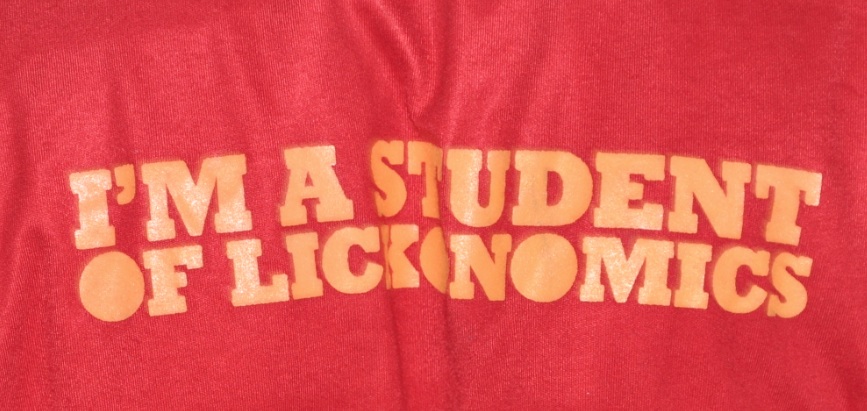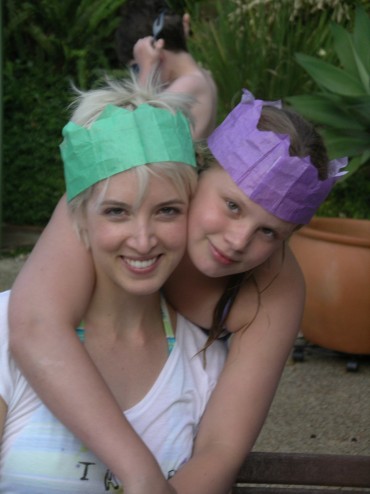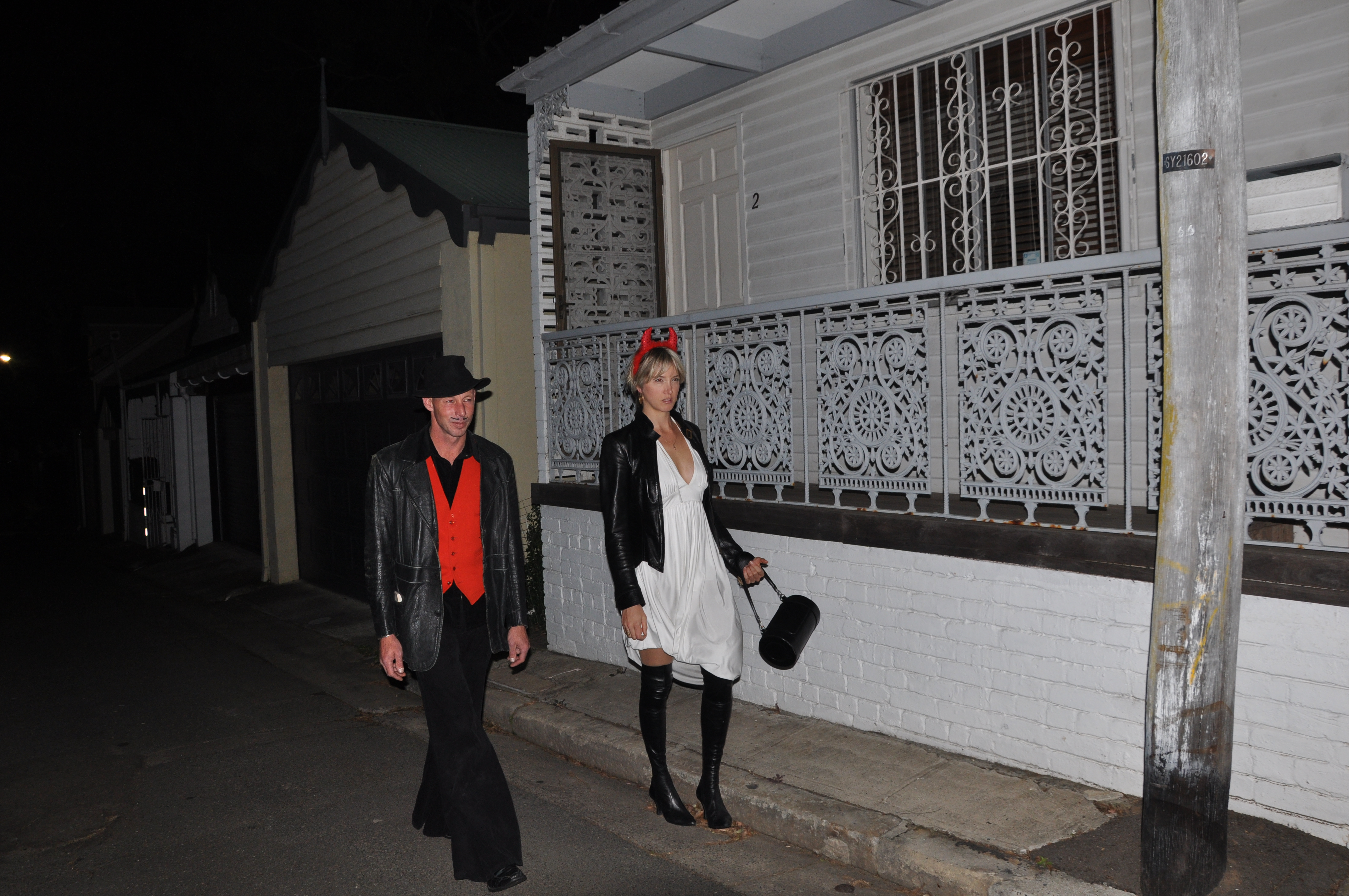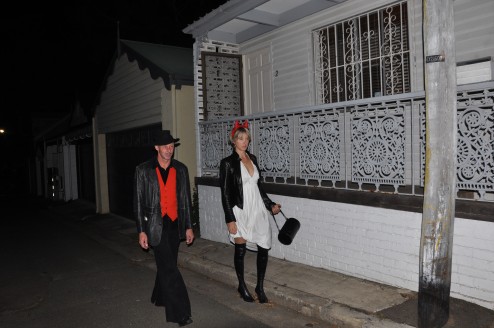Welcome to Peace and Conflict Studies. First assignment: to write write five journal entries that reflected on the learning process throughout the first half of semester. Written on the first day back at university, after five years of working, travel and a six months teaching myself everything I could at my Opas place, this is what I wrote:
3rd March 2008
Some quotes that stuck with me from today’s class:
“Peace is an active process”
“While hunger rules peace cannot prevail”
“The real weight of peace starts in everyone’s mind.”
In the PACS hallway a picture grabbed my attention: a dove in jail with a ball and chain, and blue sky shining through the window. Peace behind bars. What are the bars? Why has human civilisation led such a violent path? Why are we still living in conflict? What is standing in the way of peace? Who is standing in the way of peace?
Peace exists, it is alive, it is possible – why are humans preventing it? Man-made barriers hold back peace from prevailing. Man can free the dove. Peace is possible, and it’s up to us to identify the barriers, and develop ways to break them down.
Barash (1991) describes the scenario of lifeboat with sufficient resources for everyone. Squabbling breaks out among the occupants, and resources are thrown overboard, including the compass. Is that what we are doing to our planet? How can we prevent our boat from capsizing and losing our resources altogether?
Conflict occurs in many forms: within an individual, between individuals, within groups, between groups, within nations, and between nations. Each of these forms of conflict is inter-connected. Conflict between nations may be driven by a conflict within the individual, which may be driven by conflict with another person for example resentment towards an abusive father may influence a leader to respond aggressively towards another nation. Similarly conflict between individuals may be due to conflict between nations, for example argument over food due to hunger due to poverty caused by war.
What are the core motives of conflicts? Money? Power? Status? Fear? Desire for “happiness”?
Do we continue to live in conflict simply because we haven’t envisioned anything different? Have we just accepted that conflict is part of life?
…
On the bus home, a rather large man squeezed into the vacant seat beside me, and I started thinking about obesity. Is obesity a form of conflict?
Is there an ongoing battle inside this man’s head that says: “Shall I eat this donut, or an apple… eat the donut!!!” Or does this thought not even enter his mind. Does he eat out of depression, or maybe is it addiction? Depression and addictions must also be forms of personal conflicts.
Galtung (2006) says “Violence, insults to the basic needs of body, mind and spirit, is caused by unresolved conflict and polarization.” Obesity must involve some kind of conflict between the Mind and Body.
What does obesity reflect about the inequality in our world? There are so many people dying from lack of food, yet growing numbers are dying from excess of it. Can what was once a sign of wealth, now be considered a sign of lacking self-worth or self-control? If only we could share it around, maybe everyone could be a whole lot happier and healthier.
Is obesity a reflection of a structural violence in our own society?
Galtung (2006) discusses structural violence, saying it is typically built into the very structure of social and cultural institutions. He says that when people starve or go hungry, suffer from preventable diseases, or are denied a decent education, housing, opportunity to play, grow, work, raise a family, or express themselves freely – violence is occurring. I do think that obesity is a reflection of structural violence in the world.
Just look at the popularity of McDonalds and KFC – food soaked in fat and thick salt layered on top. To make things worse, due to the ‘low fat’ revolution, now even when think we are eating ‘healthy’, we are being tricked. Processed packages of preservatives labeled ‘low fat’. Diet coke – ‘cancer in a can’. Man-made chemicals that the body doesn’t know how to process. Should this food be legal? Is this a form of legal genocide? Does it remain legal only due to economic reasons? Greed. And due to the fact that death is drawn out over a number of years rather than immediate gun, trigger, death. Is there a lack of education – do people not know how to eat properly, following their parent’s habits who followed their parent’s habits, creating a line of obesity in their genes?
What are the consequences of obesity? Of course there are society pressures on the health system, which I suppose means higher taxes for everyone else. If obesity is a cause of unhappiness and a lack of satisfaction in people’s lives, could the flow-on affect go as far as influencing people’s daily choices that in turn impact on the world as a whole?
I know when I’m feeling down, or lacking energy, my passion for helping others and helping the environment fades away- not that I don’t care anymore, it just becomes second priority to thoughts about myself and my own unhappiness. Kind of like in Maslow’s needs hierarchy – I have to have my lower needs met – physical security & belonging needs met first, before I can think about higher needs like helping others.
Obesity is not only a barrier to positive peace like in these examples, but it’s not much good for negative peace either: will people care about preventing war, if they are in the middle of their own war, with themselves?
The percentage of obesity in Western society is growing rapidly, and as fast food makes its way into China and other developing countries, they face obesity problems too. Doesn’t this prove to the government that fast food is structural violence – slowly killing their population? Shouldn’t this be stopped?
What is going to happen in the future? Obesity causes low immune and many diseases, and ultimately shortens the life of the individual. Deutsh (2000) discusses Darwin’s ‘survival of the fittest’ and Marx’s ‘directly antagonistic classes: bourgeoisie and proletariat.’ Could the future of humanity see a class split based on healthy vs. obese? Or will they find it difficult to reproduce, and in the end just die out and leave our society with healthier fit people left? Maybe I’m taking this train of thought a little too far …
Are there any solutions? Is an obese person, now faced with a large burden-of-a-body, do they just give up? It would seem quite an impossible task, to get healthy again. I wonder what it would take for them to get them on the right track. Still Rupenstein (2003) says that destructive conflict ‘which destroys or injures valued lives, psyches, institutions, and possessions’ is by no means inevitable. I do think there are solutions to every conflict, we just have to find them and implement them. It all starts with understanding the problem.
In conclusion for today’s thoughts, I consider the concept of conflict. Is conflict something we can not escape? Its existence throughout history does show conflict as a part of human evolution. Conflict is good – it is the conflict in my life that has led me to be who I am today.
Is peace realistic? Of course it is. Peace does not mean the end of conflict, but the end of all forms of violence.
In order for our Earth to have a future, we must make peace with our environment, with other nations, and we must come up with ways we can keep harmony and peace and allow everyone the opportunity to live this way. How? That’s what I’m in this course to discover!
Photo: Photo of the back of the KFC uniform in Bombay, India. I thought it strangely appropriate for this student of peace’s journal on obesity…


 Birthdays, for me, are a time of reflection. I started this Blog on the 7th of September 2009, which means I have just missed its one-year birthday. That makes it due time to reflect and evaluate this blog: where it’s come from, where it’s going, and why. And I would like your input.
Birthdays, for me, are a time of reflection. I started this Blog on the 7th of September 2009, which means I have just missed its one-year birthday. That makes it due time to reflect and evaluate this blog: where it’s come from, where it’s going, and why. And I would like your input.
 Is your optimal trajectory something that you choose, or something that chooses you?
Is your optimal trajectory something that you choose, or something that chooses you?

 “I have to tell you that I’m really in a pretty bad state from yesterday’s drinking, and I could do with a break. I think the same goes for most of the rest of you as well, since you were there yesterday. So what do you think? How can we best make our drinking easy on ourselves,” says Pausanias at near the beginning of Plato’s Symposium… ‘at this, everyone agreed not to make the party a drunken one, but to drink only for pleasure.’
“I have to tell you that I’m really in a pretty bad state from yesterday’s drinking, and I could do with a break. I think the same goes for most of the rest of you as well, since you were there yesterday. So what do you think? How can we best make our drinking easy on ourselves,” says Pausanias at near the beginning of Plato’s Symposium… ‘at this, everyone agreed not to make the party a drunken one, but to drink only for pleasure.’



